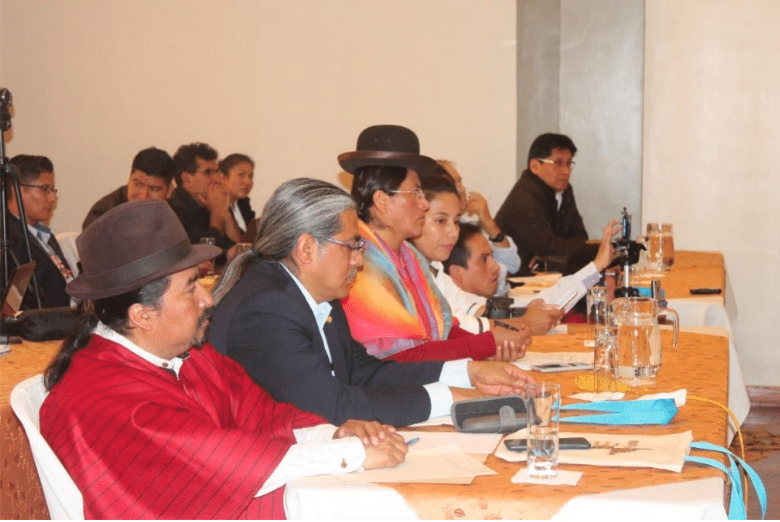PROEIB – Bilingual Intercultural Education Program, Andes
Background and objective
In Latin America, Spanish and Portuguese have displaced indigenous languages as part of different colonization processes. The claims of indigenous peoples’ rights over their languages has made progress in legislation. At least 17 countries in the region have approved legislation recognizing indigenous languages and bilingual intercultural education, but this has not stopped the risk of linguistic loss of more than half of the indigenous languages. There are currently 826 self-identified indigenous nations/peoples in the region and only 50% of them still use their language. Current governmental policies are not enough and more action is needed from indigenous leaders, communities and families to improve, strengthen and revitalize indigenous languages.
The objective of the project is to establish a space for the exchange of experiences (in Bolivia) on policies and strategies that will contribute to the revitalization of indigenous languages at risk of extinction in Latin America. The proposed event would be part of the preparatory process of the International Year of Indigenous Languages (2019), proclaimed by the General Assembly of the United Nations at its seventy-first session.
Printed exhibits presented at the event by participants. Presence of representatives of indigenous peoples. Systematization document on the event with the possibility of being published. Entre los participantes oyentes y público, se contó con la presencia de aproximadamente 150 personas.
Local partner information
The PROEIB Andes is a program in the Postgraduate Department of the Faculty of Humanity of the University of San Simón. Its work is based on research and training of professionals working with and for indigenous people in the field of Intercultural Bilingual and Sociolinguistic Education. Its objective is to develop academic research with an intercultural approach, articulating professional training and interaction with society in order to foster a higher quality education according to the current parameters that govern national and Latin American demands.

